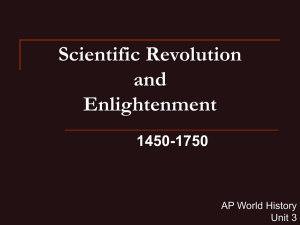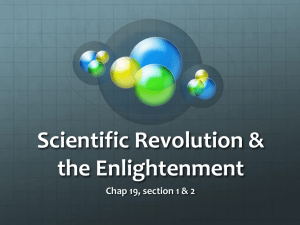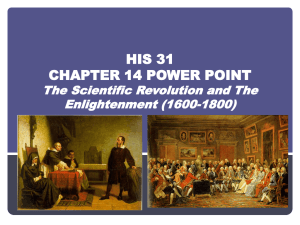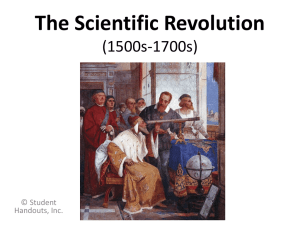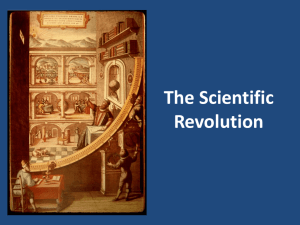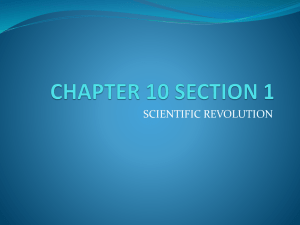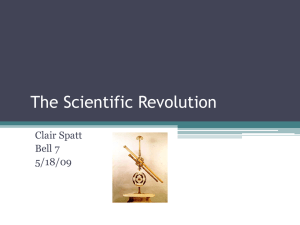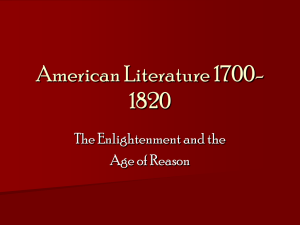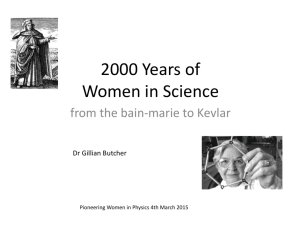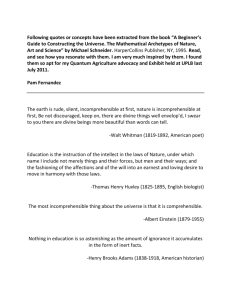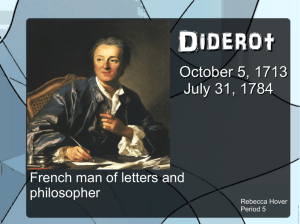ZAP Questions and Answers
advertisement
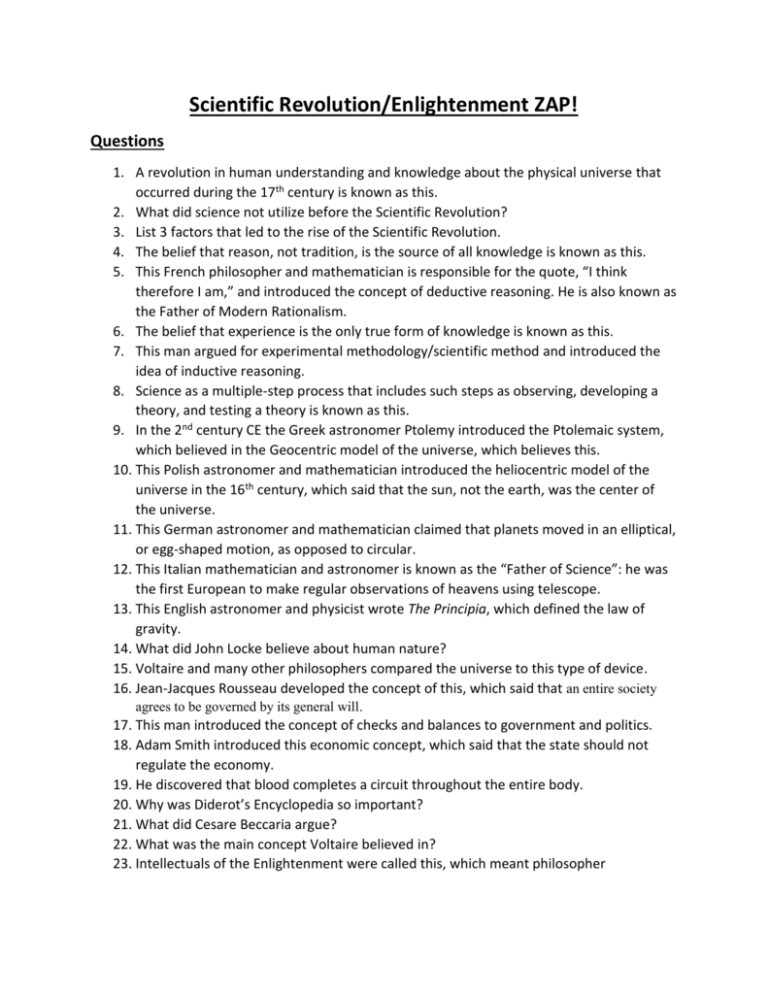
Scientific Revolution/Enlightenment ZAP! Questions 1. A revolution in human understanding and knowledge about the physical universe that occurred during the 17th century is known as this. 2. What did science not utilize before the Scientific Revolution? 3. List 3 factors that led to the rise of the Scientific Revolution. 4. The belief that reason, not tradition, is the source of all knowledge is known as this. 5. This French philosopher and mathematician is responsible for the quote, “I think therefore I am,” and introduced the concept of deductive reasoning. He is also known as the Father of Modern Rationalism. 6. The belief that experience is the only true form of knowledge is known as this. 7. This man argued for experimental methodology/scientific method and introduced the idea of inductive reasoning. 8. Science as a multiple-step process that includes such steps as observing, developing a theory, and testing a theory is known as this. 9. In the 2nd century CE the Greek astronomer Ptolemy introduced the Ptolemaic system, which believed in the Geocentric model of the universe, which believes this. 10. This Polish astronomer and mathematician introduced the heliocentric model of the universe in the 16th century, which said that the sun, not the earth, was the center of the universe. 11. This German astronomer and mathematician claimed that planets moved in an elliptical, or egg-shaped motion, as opposed to circular. 12. This Italian mathematician and astronomer is known as the “Father of Science”: he was the first European to make regular observations of heavens using telescope. 13. This English astronomer and physicist wrote The Principia, which defined the law of gravity. 14. What did John Locke believe about human nature? 15. Voltaire and many other philosophers compared the universe to this type of device. 16. Jean-Jacques Rousseau developed the concept of this, which said that an entire society agrees to be governed by its general will. 17. This man introduced the concept of checks and balances to government and politics. 18. Adam Smith introduced this economic concept, which said that the state should not regulate the economy. 19. He discovered that blood completes a circuit throughout the entire body. 20. Why was Diderot’s Encyclopedia so important? 21. What did Cesare Beccaria argue? 22. What was the main concept Voltaire believed in? 23. Intellectuals of the Enlightenment were called this, which meant philosopher Answers 1. The Scientific Revolution 2. Experimental method/observation 3. Rise of universities, Contact with non-Western societies, The Renaissance, Exploration, New technology such as the invention of telescope, microscope, and printing press 4. Rationalism 5. Rene Descartes 6. Empiricism 7. Francis Bacon 8. The scientific method 9. the universe is a series of concentric spheres with Earth fixed at the center. 10. Nicolaus Copernicus 11. Johannes Kepler 12. Galileo Galilei 13. Sir Isaac Newton 14. That they are molded by their experiences; they are born with a tabula rasa or blank slate 15. A clock 16. Social contract 17. Montesquieu 18. Laissez faire 19. William Harvey 20. Diderot’s Encyclopedia became a weapon against the old French society. Many of its articles attacked religious superstition and supported religious toleration. Others called for social, legal, and political reforms. Sold to doctors, clergymen, teachers, and lawyers, the Encyclopedia spread Enlightenment ideas. 21. Philosopher who proposed a new approach to justice and law, Wrote book On Crime and Punishment in 1764, No cruel punishment including capital punishment, Did not believe in capital punishment, Felt punishment should fit the crime, Felt death penalty didn’t deter people from committing murder 22. Religious toleration 23. Philosophes
